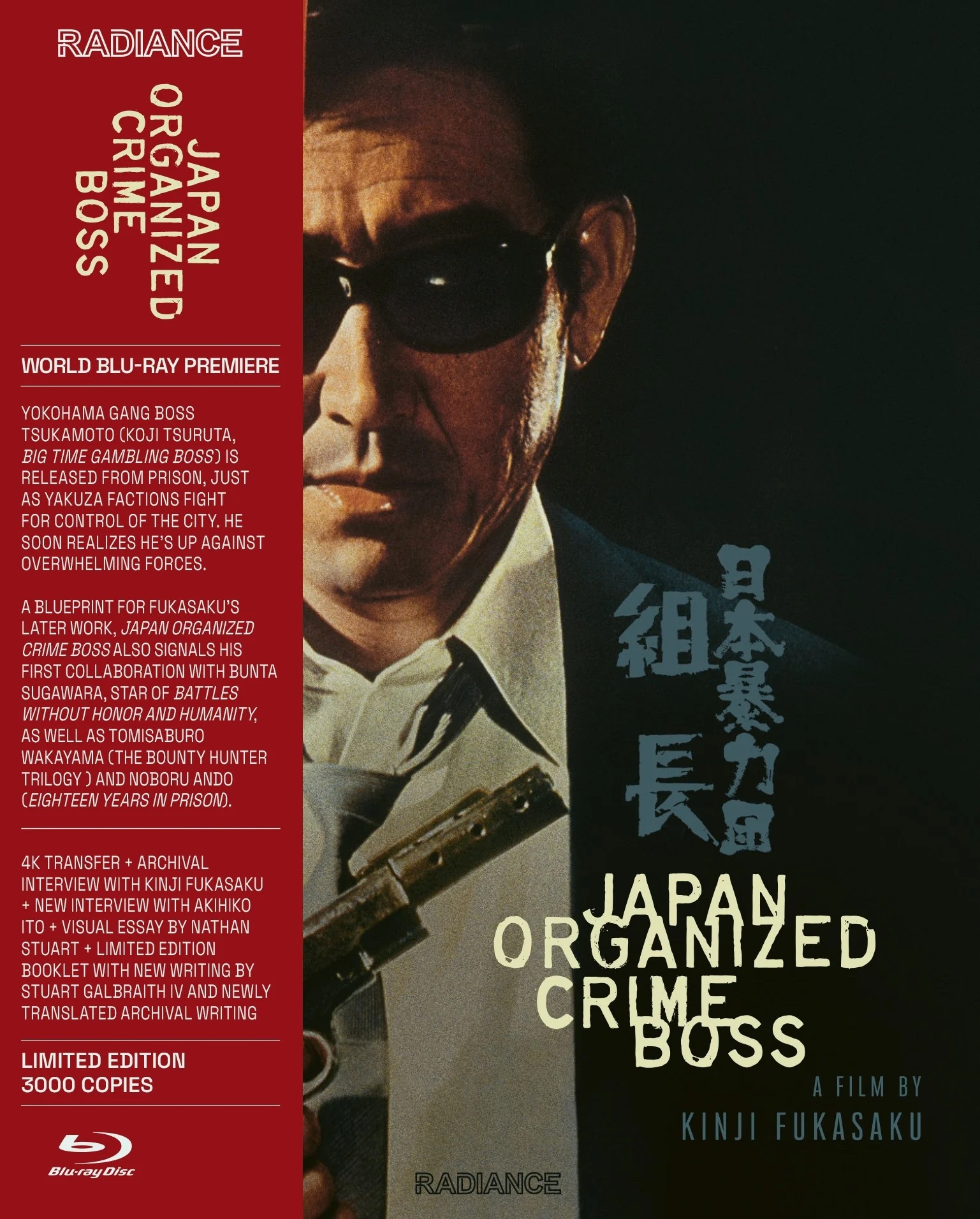At a macro level, Japan Organized Crime Boss follows a yakuza proxy war waged by the Tokyo Alliance who uses the Sakurada family of Yokohama to attack the Hamanaka Family, also of Yokohama, who have aligned themselves with the Danno Organization out of the Kansai region. We follow Tsukamoto (played by the legendary Tsuruta Kôji of the Musashi Miyamoto Samurai Trilogy), fresh out of prison and forced to step in and take the reigns of the Kamanaka family after the previous head was killed in a dynamite raid by Sakurada hitmen. Initially Tsukamoto strikes back in an attempts to appease his men but ultimately tries to take on more of a neutral stance in the conflict, not wanting to be used as a pawn in a gang war. As one would expect, this stance of neutrality doesn’t last long, particularly after the Hamanaka Family shelters an assassin named Ooba (played by real life ex-yakuza Noburo Ando) who had attempted to kill boss Danno. Ooba winds up dead anyway and Tsukamoto is driven to blood-soaked revenge when his involvement comes back to haunt him.
Japan Organized Crime Boss is quite a different animal than the gangster films director Kinji Fukasaku had made up to that point. While prior films like Wolves, Pigs and Men portrayed the yakuza as more of a sacred brotherhood whose ruthless actions were only a consequence of cruel twists of fate, this film shows the more business- and politically-driven side of running a crime organization, portraying it as more of a bloody chess game than anything to be taken personal. Plot-wise and structurally Japan Organized Crime Boss very much presages Fuksasaku’s complex gangster epic Battles Without Honor and Humanity. Interestingly though from a directing standpoint, the film is much more austere and studied in its approach, lacking Fukasaku’s later signature frenetic handheld camerawork and quick cut editing. It very much makes this film feel like a transitional picture and can feel a bit stiff compared to where Fukasaku would go in the ’70s. Still, don’t going in thinking you are getting nothing but bland exposition dumps and rigid social graces. This is still a yakuza flick punctuated with bursts of violence that results in more than a little blood shed. While I may not put this as top tier Fukasaku (admittedly an extremely high bar anyway), it’s still a terrific film worth checking out if you are into the complex political machinations of rival gangs attempting to decimate one another.
The hi-def digital transfer provided to Radiance by Toei Company is a very nice, clean one with consistent color balancing and no noticeable dirt, debris or damage to the print. Overall very much up to Radiance’s usual standards. The Japanese mono audio track is similarly solid and clear with no noticeable distortion or pronounced hiss in the track. For extras, we have an informative new interview with film historian Akihito Ito as well as a visual essay by Nathan Stuart that focuses on all of Fukasaku’s collaborations with actor Tsuruta Kôji. It also includes a 30-minute archival presentation from Fukasaku that doesn’t seem to have a whole lot to do with the film in general but feels more like a self-help presentation oddly enough. It’s interesting to see Fukasaku in this context but isn’t what I’d call essential even if it does have some interesting nuggets scattered around. As will all of Radiance’s limited editions, the disc also comes with a physical booklet featuring an informative essay on the film and its place in Fukasaku’s oeuvre by film expert Stuart Galbraith IV as well as an archival review of the film from December 1969.
While Japan Organized Crime Boss is something of a transitional film for Fukasaku, containing remnants of the more personal sentimental yakuza films and less of a hyper stylized visual motif than his later films, still it finds Fukasaku beginning to explore the more sprawling epic storylines of yakuza gang wars that he would eventually perfect in his magnum opus Battles Without Honor and Humanity. For fans of Fukasaku’s work this is an essential stepping stone on a master’s path to greatness.

